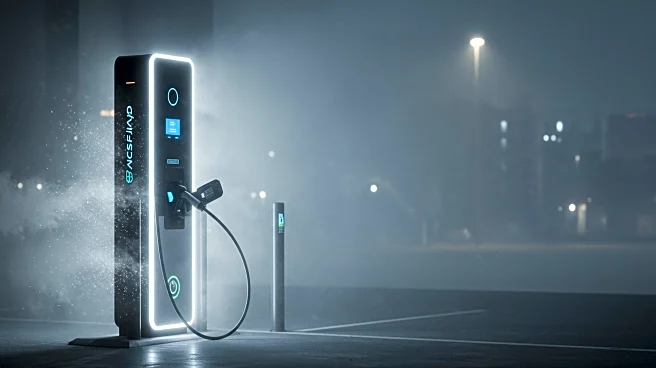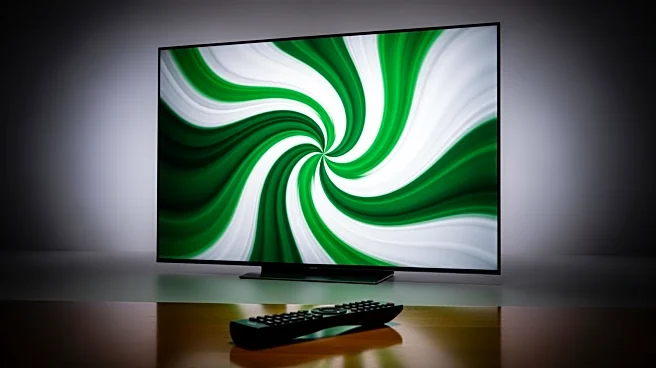What's Happening?
A study conducted by UCLA has found that electric vehicle (EV) fast chargers contribute to particle pollution, with levels exceeding typical urban background pollution. The research, led by environmental health professor Yifang Zhu, discovered that the cooling fans of fast chargers stir up fine particles from brake and tire wear, as well as dust and dirt. These particles, known as PM 2.5, pose health risks as they can enter the lungs and bloodstream. The study measured particle levels at various distances from chargers, noting that exposure decreases significantly a few meters away.
Why It's Important?
While EVs are often praised for their lack of tailpipe emissions, this study highlights an overlooked source of pollution associated with their charging infrastructure. The findings raise awareness about the potential health risks of particle pollution, particularly for individuals with pre-existing conditions. As the adoption of EVs continues to grow, understanding and mitigating these environmental impacts is crucial for ensuring public health and promoting sustainable transportation solutions.
Beyond the Headlines
The study's findings may influence future design and placement of EV charging stations to minimize exposure to harmful particles. It also underscores the need for comprehensive environmental assessments of new technologies to address potential unintended consequences. As policymakers and industry leaders work towards cleaner transportation solutions, balancing technological advancements with public health considerations will be essential.










